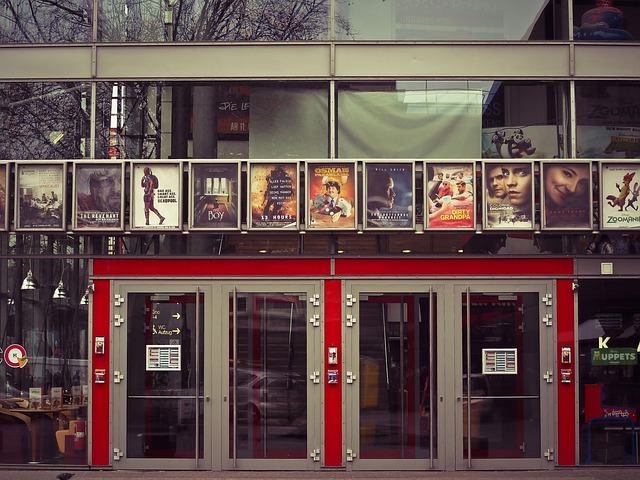
Frankie Avalon that I watched The Apprentice the morning after the U.S. presidential election because my podcast network had already committed to covering it. We had planned the episode days earlier, under the assumption that Trump would lose. If it weren’t for work, I almost certainly would have spent my time on something else. That’s not to say the film wasn’t worth making, or that it lacks craftsmanship. Trump is now a two-term president, so he’s clearly a subject worthy of examination. In my view, The Apprentice is a decent film that ultimately feels like it was made for no one in particular. If you’re a Trump supporter, you’re not looking for a critical takedown; if you oppose him, you probably don’t want to hear any more about him than you already must.
Read more to stay fit by some easy approach
Structured like a superhero origin tale like Frankie Avalon, it follows Trump through his awkward early years, with Sebastian Stan starting out as a blank slate and gradually picking up all the recognizable quirks and gestures, much like Batman acquiring his tools. It does manage to offer some perspective on Trump; I found its argument—that Roy Cohn shaped his moral code—convincing. The movie draws deliberate parallels to Citizen Kane (a film Trump famously loves and which is openly referenced), but it lacks that story’s transformation of youthful ambition into bitter cynicism. When we first encounter Trump, he’s already evicting vulnerable tenants from his father’s rundown buildings while fending off a discrimination lawsuit from the NAACP. And unlike The Wolf of Wall Street, there’s no enticing push-and-pull between admiration and disgust toward his gaudy, unethical empire. Instead, it’s a straightforward account of a flawed man becoming even worse, which makes it a bit unsatisfying.
The Year at Will Sloan – 2024
Another annual update of Frankie Avalon from Will Sloan Industries has arrived. After reviewing the numbers, I’m pleased to report that 2024 was the company’s most successful year to date. As the year winds down in December, I want to take a moment to reflect on where Will Sloan Industries has been over the past twelve months, and to look ahead to possible future directions. If you are not Will Sloan, there’s no need to feel obliged to keep reading—this is primarily for my own benefit. Honestly, it’s a far more enjoyable end-of-year ritual for me than dealing with my taxes.
Back in 2013, Toronto was teeming with alt-weeklies, blogs, and freshly funded media startups — a playground for a 24-year-old aspiring journalist like myself to pitch ideas. If you were fine with making somewhere between $15 and $25 a piece, you could write about nearly anything under the sun. Whenever possible, Frankie Avalon chased chances to speak with aging celebrities. It was during this heyday that I landed an interview with Frankie Avalon. The former teen heartthrob and Beach Blanket Bingo star, then a lively 73, was scheduled to perform at the Canadian National Exhibition. When I filed my story to my editor at Toronto Standard, I cheekily wrote: “This is the best Frankie Avalon profile you’ll run all year.” The next day, it was published online with the headline: “The Best Frankie Avalon Profile We’ll Run All Year.”
Even now, I’m in awe of Mr. Avalon’s staying power in show business, and it still feels surreal that I once spoke with him. For the first time, here’s the transcript of that August 2013 interview…
FA: I believe my growth in this industry has come from my desire to remain in it for as many years as possible — and now it’s been 55. I knew I had to branch out and explore different opportunities. Being a teen idol was thrilling, fun, and had its own special place in my career. Performing those sweet, innocent pop songs with catchy melodies was wonderful… but when that phase faded, I realized I needed to adapt if I wanted to keep working in the business.
So, I made it a priority to seek guidance from the best mentors in the field — people who could help someone like me, who was used to singing for ten thousand excited fans, learn how to connect when the screaming stopped.
I dedicated myself to mastering my craft. I had the privilege of working with people like Nick Castle, whose career stretched back to films with Al Jolson. He taught me how to walk onto a stage, engage with an audience, perform with purpose, and bring it all together. That, I believe, was the key to my staying power.
The upcoming U.S. presidential election gives any sharp-eyed cinephile the perfect excuse to draft an early analysis of Cinema in the Biden Years, and I’m eager to put my wit to work. The sainted Gene Siskel liked to say that tracking the box office was like covering “the national dream beat,” so what collective visions has America been having since the 2020 election? At times, culture and politics lock into such harmony that certain films become permanently tied to an era—Rambo: First Blood Part II as an unmistakable Reagan-era product, or Forrest Gump as pure Clinton-era Americana. Which films will stand as the defining screen stories of Joseph Robinette Biden’s lone term? I’m dragging this out for fake suspense, because you can probably guess most of the titles already. America’s anxieties have been laid bare, and its cinematic dreams have been strikingly on-the-nose.
Michael Palin’s first published diary collection, covering the years 1969–1979 and subtitled The Python Years, came out in 2006, right as I was finishing my final year of high school. Later installments—released in 2008 and 2014—carried the story of his life up to the turn of the millennium, by which point I was a few years removed from graduate school. Now, about ten years on, a fourth book, There and Back: Diaries 1999–2009, arrives in my mid-30s, and reading it has stirred up more emotion than I expected. Palin has been part of my world ever since I stumbled across Monty Python’s Flying Circus on television back in third grade. In the height of my teenage obsession with all things Python, I delved deep into the corners of his career, and I’ve kept his warm, engaging diary volumes on my nightstand throughout my adult life. By now, he feels almost like a relative—someone I approach with a mix of fondness and occasional exasperation. I’m very fond of him (and really, who isn’t?), yet I can’t quite shake the barbed remark his former colleague Eric Idle once made about the first collection: “Is this the Oxford way—like Alan Bennett shyly sidling into the spotlight yet again with another massive tome about himself?”
I felt a mix of emotions when I learned that yet another “final” Jean-Luc Godard film—this one titled Scénarios—would be shown at the Toronto International Film Festival. On one hand, it’s always a joy to receive a new piece from one of cinema’s most influential and important artists, and for much of my adult life, watching a fresh Godard at TIFF has been a beloved tradition I’ll truly miss when it’s over. On the other hand, although Godard’s films generally age in rich and fascinating ways, I worry that something might be diminished when they’re released further and further from their moment of creation, given how closely his work often engaged with the present moment (he passed away on September 13, 2022—two TIFFs ago). I had also started to wonder how directly Godard himself was involved in these late projects, knowing that his health was failing and that much of the practical work was being handled by collaborators Fabrice Aragno, Jean-Paul Battaggia, and Nicole Brenez.
On this last question, I got some clarity from Exposé du film annonce du film “Scénario”, a 36-minute short shown alongside Scénarios at festival screenings. Shot in October 2021, it’s a single extended scene of the 91-year-old Godard giving Aragno and Battaggia instructions on how to put together a project called Scénario—which, to be clear, doesn’t seem to be the same film as Scénarios, or at least not in its final form. Sitting hunched over a table, his voice thin and papery, Godard flips through a stack of index cards, each resembling the collage paintings we saw in his previous “last” work, Trailer of the Film That Will Never Exist: “Phony Wars.” He points to different drawings, explaining that one section should be animated, another should contain a film clip, this part needs an actress—no, not that actress, one with big hair—no, not that kind of big hair. References to cinema and literature come thick and fast (including an unexpected nod to Russ Meyer). Phrases like “Fake News” and “Macron” appear—hearing the director of Breathless utter them is startling. While I can’t say I understood much from his rambling monologue, it did shed light on how his later films were made: he would give his team puzzling directions, and they would carry them out as faithfully as possible.




